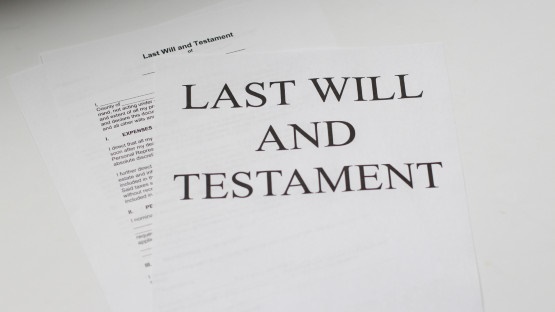28 July 2022

Will dispute: Costs agreement under spotlight
A costs judge did not have jurisdiction to decide whether he could set aside an earlier agreement to settle the costs as part of a section 70 assessment, the High Court has ruled.
Mr Justice Johnson held that the section did not allow a costs judge to engage in “a freestanding enquiry into the question of whether the agreement should be set aside on grounds of undue influence”.
In Lisa Jones v Richard Slade & Company Ltd [2022] EWHC 1968 (QB), London law firm Richard Slade & Company (RSC) acted for Lisa Jones and her siblings in a will dispute. Following a mediation, her late father’s executors agreed to pay Ms Jones and one of her siblings £87,500 each, and to contribute £13,750 towards their costs.
RSC’s invoiced fees “substantially exceeded” that sum. Ms Jones was not willing to pay but accepted the firm’s offer to reduce its fees to £15,000, plus another £7,000 in VAT and disbursements. With her consent, RSC deducted this from the settlement.
Ms Jones then consulted Checkmylegalfees (CMLF), which notified RSC that Ms Jones would seek a Solicitors Act assessment. RSC said it would agree to an assessment on the basis that the agreement was set aside.
The judge observed: “It objected to the suggestion that Ms Jones could both take the benefit of the agreement, but then seek a further reduction at the same time. That, it said, would be ‘the costs equivalent of having their cake and eating it’.”
Ms Jones issued a part 8 claim seeking an order for an assessment under section 70 of the Solicitors Act. The case was referred to the Senior Courts Costs Office to determine two preliminary issues, one of which concerned whether the agreement was valid.
CMLF argued that there was “clear evidence of unconscionable conduct” by RSC such that Ms Jones did not enter into the agreement of her own free will, or alternatively that it was reached following illegitimate pressure and economic duress.
RSC sought to have this element of the claim struck out, saying the question of whether the agreement should be set aside fell outside the scope of section 70 proceedings and should be pursued in a freestanding claim. Master Rowley disagreed and held that he had jurisdiction.
Johnson J accepted that “the contours of permissible enquiry under section 70 are not sharply defined”, but the case law showed that “wholesale” allegations of professional negligence may not be determined when assessing costs.
On the other hand, a “discrete and contained allegation of negligence” may be relevant to the question of whether particular items of costs were reasonably incurred.
There was “no good reason” why allegations of the type advanced here – of breach of fiduciary duty, or inappropriate pressure, or economic duress – should be treated differently from those of professional negligence.
“If an individual item of costs was incurred because, for example, a solicitor acted in breach of fiduciary duty, then that might be relevant to the assessment of costs. More generalised allegations about a solicitor’s conduct are less likely to be within the proper scope of a costs assessment.”
While the court had jurisdiction to determine whether the agreement precluded a section 70 assessment, “I do not consider that there is anything within section 70 that permits the court to embark on what is in effect a freestanding enquiry into the question of whether the agreement should be set aside on grounds of undue influence. That involves the exercise of a distinct equitable jurisdiction which forms no part of an assessment of costs”.
Johnson J acknowledged that section 70 did not explicitly say that a court assessing costs may not set aside a prior agreement between solicitor and client. “But that is not particularly informative. Where, as here, a judge is exercising a wholly statutory jurisdiction, it is necessary to show what the statute positively permits. The fact that something is not positively excluded does not mean that it is, by omission, permitted.
“Further, the fact that Parliament included a power to set aside a non-contentious business agreements under section 57(2), and a power to do the same in respect of contentious business agreement under section 61(2)(b), but did not include a more general power to set aside agreements under section 70, is a strong indicator that section 70 was not intended to permit this type of exercise.”
Ms Jones was asking the court to exercise a jurisdiction that it did not have and Johnson J concluded that it did not have power to set aside the agreement when assessing costs under section 70.
Robin Dunne (instructed by Clear Legal Ltd) for the claimant/respondent. Benjamin Williams QC (instructed by Richard Slade & Company Ltd) for the defendant/appellant.
